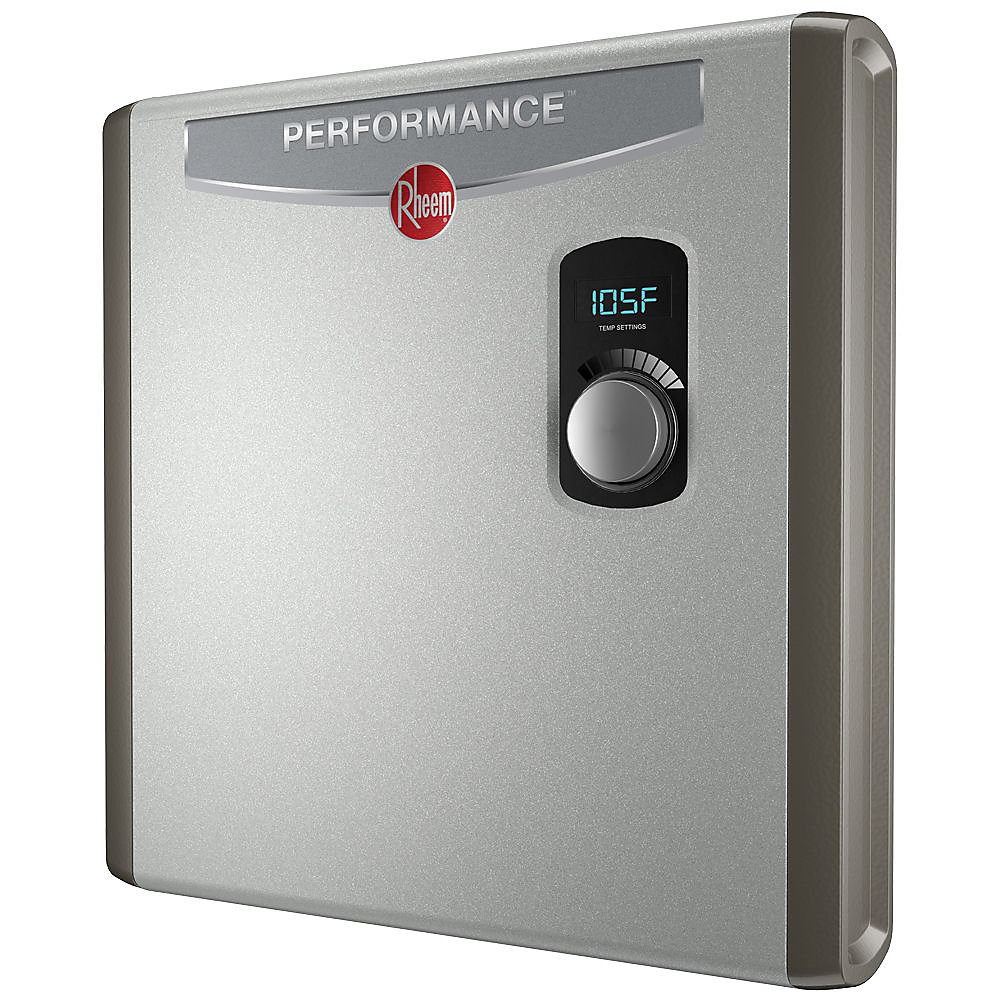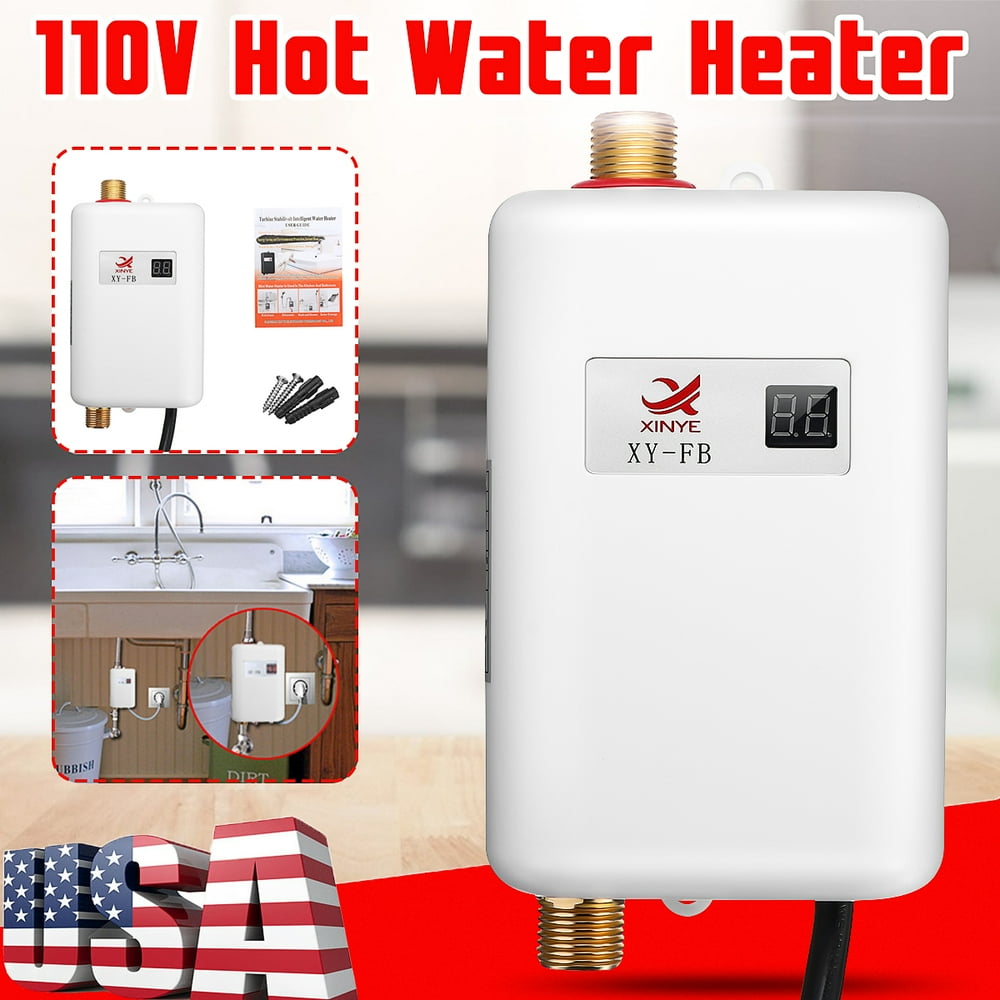tankless electric water heater for rv
27kW Electric Tankless Water Heater

1. What is a tankless water heater?
A tankless water heater, also known as an on-demand water heater, is a device that heats water as it passes through the unit, without the need for a storage tank. It provides hot water on demand and eliminates the need for a traditional water heater with a large storage tank.
- Tankless water heaters are more energy-efficient than traditional water heaters as they only heat water when needed.
- They take up less space since they don't require a bulky storage tank.
- Tankless water heaters provide a continuous supply of hot water, never running out during usage.
- They have a longer lifespan compared to traditional water heaters.
- Installation and maintenance may require professional assistance.
2. How does a tankless water heater work?
A tankless water heater works by heating water directly as it flows through the unit. When a hot water tap is turned on, cold water enters the heater and passes through a heat exchanger, where it is rapidly heated by a gas burner or electric heating element. The heated water then flows out of the unit and to the desired location.
- Gas-powered tankless water heaters use a gas burner to heat the water.
- Electric tankless water heaters use electric heating elements to heat the water.
- Both types have sensors that detect the flow of water and activate the heating mechanism.
3. What are the advantages of a 27kW electric tankless water heater?
A 27kW electric tankless water heater offers several advantages:
- High heating power for quick and efficient heating of water.
- Instant hot water supply, eliminating the need for waiting for the water to heat up.
- Energy-efficient operation, as it only heats water when needed.
- Compact size, allowing for flexible installation options.
- Longer lifespan compared to traditional water heaters.
Consulting a plumbing expert is recommended to determine if a 27kW electric tankless water heater is suitable for your specific needs.
Novashion Electric Tankless Water Heater 3.0KW 110V Instant Hot On

4. How does the Novashion Electric Tankless Water Heater work?
The Novashion Electric Tankless Water Heater operates by directly heating water as it passes through the unit. Cold water enters the heater, and the heating element rapidly heats it to the desired temperature. The heated water is then supplied instantly to the connected faucets or showers.
- This specific model has a power rating of 3.0KW and operates on a 110V power supply.
- It provides hot water on demand, eliminating the need for a storage tank.
- The compact design allows for easy installation and saves space.
- It is suitable for use in areas where a higher power supply is not available.
5. What are the benefits of using the Novashion Electric Tankless Water Heater?
The Novashion Electric Tankless Water Heater offers several benefits:
- Instant hot water supply, ensuring a continuous flow of hot water whenever needed.
- Energy-efficient operation, saving on heating costs.
- Compact design, taking up less space in the installation area.
- Easy installation and versatility for various applications.
- Low maintenance requirements, providing convenience for homeowners.
6. Are electric tankless water heaters suitable for small households?
Electric tankless water heaters can be suitable for small households depending on their specific water usage needs. Here are some factors to consider:
- The flow rate and temperature rise capabilities of the specific electric tankless water heater model. Ensure it can meet the hot water demands of the household.
- The number of hot water outlets in the house and their simultaneous usage. If multiple outlets are frequently used at the same time, a higher capacity tankless water heater may be necessary.
- Household habits and preferences regarding hot water usage. If the household consumes hot water in larger quantities frequently, a higher capacity unit may be more suitable.
- Consulting a plumbing expert to assess the water usage patterns and recommend an appropriate electric tankless water heater size for a small household.
7. How can I choose the right tankless water heater size for my home?
Choosing the right tankless water heater size involves considering several factors:
- Hot water demand: Determine the maximum flow rate and temperature rise required to supply hot water to all the outlets in your home simultaneously.
- Number of hot water outlets: Consider the number of showers, faucets, and appliances that require hot water simultaneously. Ensure the tankless water heater can handle the demand.
- Climate: In colder climates, a higher temperature rise capability may be required.
- Consulting a plumbing expert for a professional assessment and recommendation based on your specific needs and household usage patterns.
8. Can a tankless water heater save energy and reduce utility bills?
Yes, tankless water heaters are known for their energy efficiency and potential utility bill savings. Here's how:
- They only heat water when it is needed, eliminating standby energy losses associated with traditional water heaters.
- Tankless water heaters are typically more efficient than storage tank water heaters, resulting in reduced energy consumption.
- Energy savings can vary based on usage patterns, water temperature, and the specific model of the tankless water heater.
- Consulting with an energy expert or plumbing professional can provide more accurate estimates of potential energy savings based on specific usage requirements.
9. Are tankless water heaters more expensive to purchase and install compared to traditional water heaters?
Tankless water heaters can have a higher upfront cost compared to traditional water heaters, but they can offer long-term cost savings. Consider the following:
- Tankless water heaters tend to have a longer lifespan compared to traditional water heaters, reducing the need for frequent replacements.
- Installation costs may vary depending on factors such as the complexity of the installation, required modifications, and labor expenses.
- While traditional water heaters may have lower upfront costs, their higher energy consumption can result in increased utility bills over time.
- Considering the long-term benefits and potential energy savings, investing in a tankless water heater may be more cost-effective in the long run.
10. Can a tankless water heater provide enough hot water for multiple showers simultaneously?
Yes, tankless water heaters can provide enough hot water for multiple showers simultaneously, but it depends on their capacity and the specific model. Consider the following:
- Tankless water heaters have different flow rates and temperature rise capabilities. Ensure you choose a model that can meet the cumulative hot water demand of all the showers.
- If multiple showers are frequently used simultaneously, a higher capacity tankless water heater may be necessary.
- Consulting a plumbing expert or checking the manufacturer's specifications can help determine if a particular tankless water heater is suitable for simultaneous multiple shower usage.
11. Are there any maintenance requirements for tankless water heaters?
Tankless water heaters generally have lower maintenance requirements compared to traditional water heaters, but some routine maintenance is still necessary. Consider the following:
- Flushing the unit periodically to remove mineral deposits and ensure optimal performance.
- Checking and cleaning the inlet water filter regularly to prevent clogging.
- Inspecting and cleaning the burner or heating element, if applicable.
- Following the manufacturer's instructions for maintenance intervals and procedures.
- Consulting a plumbing professional for expert guidance on tankless water heater maintenance specific to the model and your water conditions.
12. Can tankless water heaters be installed in any home?
Tankless water heaters can be installed in many homes, but there are some considerations to keep in mind:
- Available power supply: Determine if your home has the appropriate electrical or gas supply to support a tankless water heater installation.
- Space requirements: Ensure you have adequate space for the tankless water heater unit and any necessary venting or exhaust system.
- Water demand: Assess your household's hot water demands to choose a tankless water heater with the suitable capacity.
- Professional installation: Tankless water heaters may require professional installation to ensure proper setup and compliance with building codes.
In conclusion, tankless water heaters offer numerous benefits such as energy efficiency, instant hot water supply, and space-saving design. Consider your specific needs, consult with experts, and choose the right tankless water heater for your home.